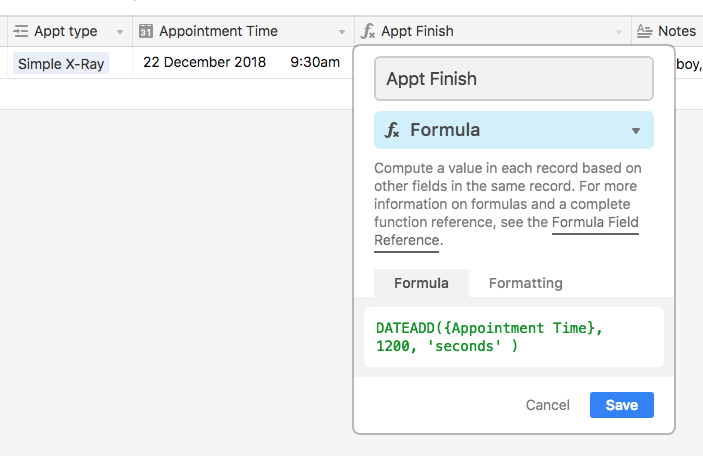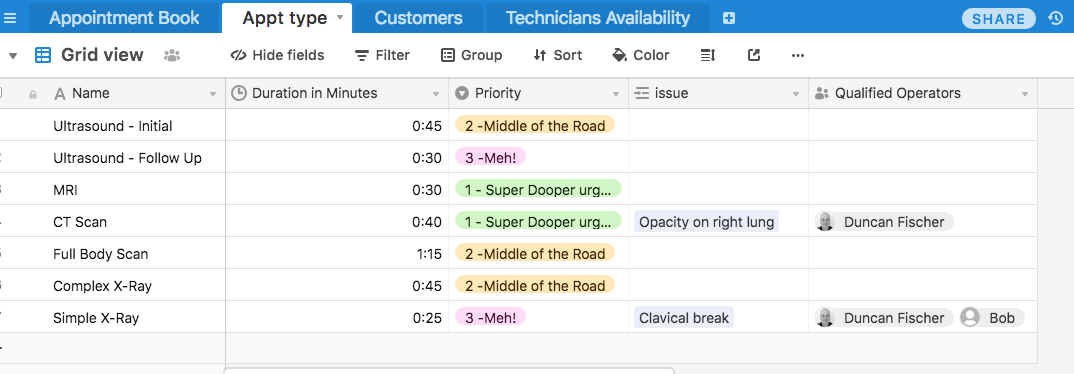I am trying to a similar thing, but instead of adding an INTERGER for the multiplier in the DATEADD formula, I am trying to pick up a value form a table LOOKUP.
Have also tried with a FORMULA cell and it doesn.t work either.
I have different categories of appointments to book, that each have different duration and priorities
TIA,
Duncan








